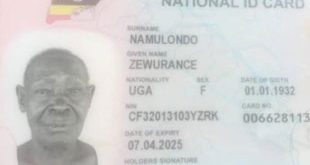Cape Town, South Africa | AFP | Below are key dates in the presidency of Jacob Zuma, in power in South Africa since 2009, and who survived a no-confidence vote by secret ballot in parliament Tuesday.
– 2009: First Zulu president –
On May 6, 2009, Zuma, the head of the African National Congress (ANC), is elected president by parliament after his party’s victory at general elections. The country’s first Zulu president, Zuma is sworn in three days later.
He had defeated Thabo Mbeki for the leadership of the party in late 2007. Mbeki had fired Zuma from the vice presidency two years earlier over accusations of corruption.
In April 2012, firebrand Julius Malema, the chief of the ANC Youth League, is kicked out of the ANC for his repeated attacks on its image and unity. In 2013 Malema founds the leftist Economic Freedom Fighters (EFF) party.
– 2012: Marikana massacre –
On August 16, 2012, 34 Marikana mine workers are gunned down after police are deployed to break up a wildcat strike that has turned violent at the Lonmin-owned platinum mine northwest of Johannesburg.
The massacre unleashes a violent wave of strikes in South Africa’s mines, during which around 60 are killed.
– 2016: Corruption allegations –
On May 21, 2014, Zuma is re-elected by parliament as head of state, following the ANC’s victory at general elections.
On March 31, 2016, he suffer a serious setback when the Constitutional Court finds him guilty of having violated the constitution in using public money for his private residence in Nkandla in the east of the country.
In August he is blamed when the ANC suffers a major reversal in municipal elections, losing control of three cities, including the administrative capital Pretoria and the economic hub Johannesburg.
On November 2 calls for Zuma to resign reach new heights after a much-awaited probe is published into his allegedly corrupt relationship with the Guptas, a business family from India.
On November 10, he survives, as expected, a new no-confidence vote, lodged in parliament by the opposition.
– 2017: New no-confidence vote –
On March 31, 2017, Zuma fires his respected finance minister and adversary Pravin Gordhan, pitching the ruling party into chaos. Tens of thousands go into the streets in April to demand Zuma’s resignation.
On August 7, the parliament’s speaker says that lawmakers will hold a secret ballot in a new vote of no-confidence against Zuma, with the opposition hoping to win over ANC members to their cause.
 The Independent Uganda: You get the Truth we Pay the Price
The Independent Uganda: You get the Truth we Pay the Price


